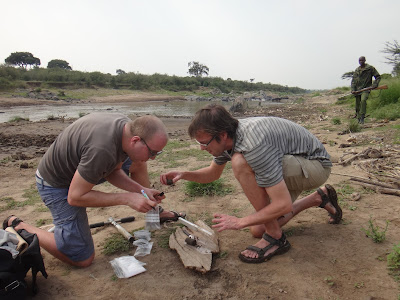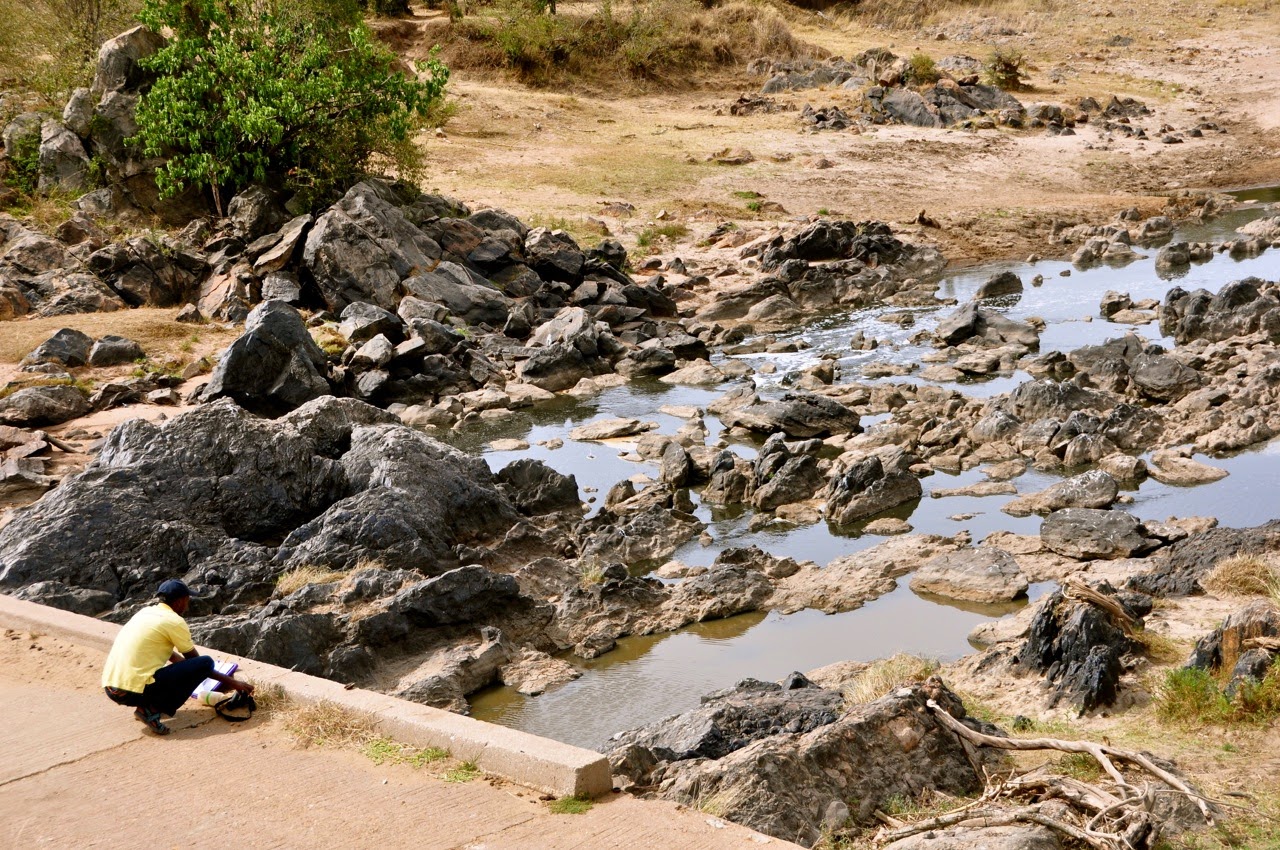After our test run with the robotic boat the other day, we were feeling pretty confident the boats would be fine in the river... it was just the hippos we were nervous about. Hippos can be pretty territorial about their pools, even attacking one another and sometimes pushing subordinant males out of the pool completely, with plenty of deep scars to show for it. While hippo skin is tough enough to sustain the sharp tusks of their fellow pool-mates with usually minimal damage to the animal, we didn't think our boat could handle a bite. Our goal was to avoid a hippo interaction altogether, which we hoped the crocodile disguise would help with. Hippos and crocodiles share pools, albeit sometimes grudgingly, but all we needed was for a hippo to think twice before attacking the boat.
We went down to the water's edge and gently set our craft afloat. I could feel my stomach in my throat, watching this boat with all this important scientific equipment being sent out into such dangerous waters.
Of course, it wasn't just the boat that was in a precarious position. Going down to the water's edge at a hippo pool can be dangerous, due to both crocs and hippos, so we hired an armed ranger from the Mara Conservancy each day to accompany us. Still, it made me hyper-vigilant every time one of our guests approached the water, and I was constantly urging them to minimize their time at the water's edge.
The hippos were definitely curious about the boat, and they kept popping their heads above water and blowing forcefully out of their nostrils, as if issuing a warning to the "crocodile" not to get too close. Fortunately, the hippos also congregated closer and closer, allowing us to get a pretty thorough survey of the majority of the pool. We managed to get within a few meters of the hippos, but we decided not to push our luck any further.
It wasn't just the hippos that were curious-- we also had a vervet monkey climb out on a tree limb over the river in order to get a closer look at this strange creature!

Everything went remarkably well, and we surveyed hippo pool after hippo pool, increasingly confident in the boat's ability to deter the hippos, and our boat driver's ability to avoid the hippos. Of course, just when you're getting comfortable is when nature will choose to remind you who's really in charge. We were surveying the last hippo pool of the day, which was down inside a deeply incised river channel. The hippos at this pool seemed especially ornery, and we had to launch the boat about 100 meters downstream of the hippo pool in order to approach the river safely. It was difficult to walk down to the river and launch the boat, because the banks were so steep and the edge of the riverbank dropped off quickly. All of this contributed to a general sense of unease as we watched our pilot slowly navigate the boat upstream.

As the boat approached the pod of hippos, suddenly one huge male broke away from the pod and came lunging towards the boat. The pilot cranked up the speed on the boat, but the hippo kept gaining ground. We all watched breathlessly to see if the boat would be able to escape, and suddenly, something seemed to spook the hippo, and he made one last giant splashing lunge towards the boat and then turned around. The boat zoomed away, and the hippo grudgingly returned to his pod.

The video of this event is pretty exciting to watch, and it got a lot of coverage online. You can see a list of links to stories about our work and a video of the chase
here.



















